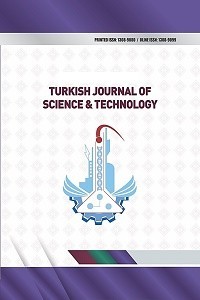Occupational Health Risk Analysis and Assessment in Cement Production Processes
Occupational Health Risk Analysis and Assessment in Cement Production Processes
The purpose of this
study is to determine safety risk scores by carrying out risk analysis within
plant site according to the occupational health and safety risk management in the cement production processes. To determine occupational and safety risks scores,
the plant site studies have been performed
by using 5x5 L type risk matrix methodology in the Elazığ-Altınova Cement
Plant. The plant site visit covers the sections of raw material processing,
storage and transportation, raw material milling, clinker production and cement
milling. All possible risks were listed,
likelihood and severity of the risks were determined and by using these values
and risk scores were calculated. After determining the risks for the workers,
the safety risk tables were prepared, and the possible risks were classified as high, moderate and low-risk degrees concerning
occupational and safety risk management system. The results of risk assessment
revealed that the most dangerous risks were came out in the raw material
milling. On the other hand, the highest risk scores were also observed in the
raw material milling section. It was found that the crusher, raw material and
cement mills and rotary kiln are the most dust, noise, and vibration producing
units.
Keywords:
Cement Process, Occupational Health and Safety, Risk Definition Risk Analysis and Assessment, L type risk matrix methodology,
___
- 1. Engin, T. and Ari, V. (2005). Energy auditing and recovery for dry type cement rotary kiln systems e a case study. Energy Conversion and Management, 46, 551-562. 2. Mintus F., Hamel, S. and Krumm, W. (2006). Wet process rotary cement kilns: modelling and simulation. Clean Technologies and Environmental Policy, 8, 112-122. 3. Alvear-Galindo, M. G., Mendez-Ramirez, I., Villegas-Rodriguez, J. A., Chapela-Mendoza, R., Eslava Campos, C. A. and Laurel, A. C. (1999). Risk indicator of dust exposure and health effects in cement plant workers. Journal of Occupational Environmental Medicine, 41, 654-61. 4. Laurell, A. (1999). “Risk indicator of dust exposure and health effects in cement plant workers. J. Occup. Environ. Med., 41, 654-61. 5. Türkkan, A. (2015). Health effects of cement factories. Turkish Medical Association Bursa Chamber of Medical Doctors, Bursa. ISBN: 978-605-5867-90-4. 6. Saucier, K. and Janes, S. (2004). Essential of community based nursing. 1st ed., London: Jonesand Publishers, 271-272. 7. David, K., Kee-Seng C. and Jeyaratnam, J. (2005). Textbook of occupational medicine practice, 2nd ed., Word Scientific Publisher. 8. Herzstein, A., Bunn, B., Fleming, E., Harrengton, M., Jeyoratonam, J. and Abd Gardner, J. (2006). Occupational and environmental medicine, 2nd ed., 183-207, Louse, Mosby. 9. R. Hamdy, “Health Status and Occupation,” J., Occup. Med., vol. 45(1), pp. 35-9, 2007. 10. El-Sobky, M. K. (2008). Study of accidents among workers Helwan cement factories. MD Thesis, Faculty of Medicine, , Cairo University. 11. Mndeme, F. G. and Mkoma, S. L. 2012. Assessment of work zone noise levels at a cement factory in Tanga. Ethiopian Journal of Environmental Studies and Management, 5, 6-15. 12. Sekhavati1, E., Mohammadizadeh, M., Mohammadfam, I., Zarandi, A. F. (2015). Noise pollution risk assessment in cement factory of Larestan using William Fine Method. J. Appl. Environ. Biol. Sci., 5(8), 208-213. 13. Benhelal, E., Zahedi, G., Shamsaei E. and Bahadori, A. (2013). Global strategies and potentials to curb CO2 emissions in cement industry. Journal of Cleaner Production, 51, 142-161. 14. Ishak, S. and Hashim, H. (2015). Low carbon measures for cement plant. Journal of Cleaner Production, 103, 260-274. 15. Soussia1, T., Guedenon, P., Lawani, R., Gbaguidi, C. D. and Edorh, P. A. (2015). Assessment of cement dust deposit in a cement factory in Cotonou (Benin). Journal of Environmental Protection, 6, 675-682. 16. Huntzinger, D. N. and Eatmon, T. D. (2009). A life-cycle assessment of Portland cement manufacturing: comparing the traditional process with alternative Technologies. Journal of Cleaner Production, vol. 17, 668–675. 17. Demirbağ, B. C., Bayrak, B. Ç., Özkan, G. and Çaylak, E. (2017). Evaluation of the life Quality of workers in a cement factory. Procedia - Social and Behavioral Sciences, 237, 1462–1467. 18. Shafik, S. A. and Abd El-Mohsen, A. S. (2012). Occupational health: Health promotion program to improve health workers in Tourah Cement Factory. Journal of American Science, 8, 486-496. 19. Sana, S., Bhat G. A. and Balkhi, H. M. (2013). Health risks associated with workers in cement factories. International Journal of Scientific and Research Publications, 3(5), 2250-3153. 20. Mujumdar, K. S. and Ranade, V.V. (2006). Simulation of rotary cement kilns using a one dimensional model. Chemical Engineering Research and Design, 84, 165-177. 21. Wang, S., Lu, J., Li, W., Li, J. and Hu, Z. (2006). Modeling of pulverized coal combustion in cement rotary kiln. Energy Fuels, 20, 2350-2356. 22. Crockford, N. (1986). An Introduction to Risk Management, 2nd ed., Woodhead-Faulkner. 23. Vaughan, E. (1997). Risk Management, John Willey&Sons, , New York. 24. Güngör, A. (2004). National Health and Safety Management Tool, PhD Thesis, the Institute for Graduate Studies in Science and Engineering, Middle East Technical University, Ankara. 25. Metinsoy, T. (2010). A method of evaluatıon of relationshıp between the safety management and overall safety performance ın constructıon ındustry, PhD Thesis, the Institute for Graduate Studies in Science and Engineering, İstanbul. 26. Ristic, D. (2013). A tool for risk assessment. Safety Engineering, 3, 121-127.
- ISSN: 1308-9080
- Başlangıç: 2009
- Yayıncı: Fırat Üniversitesi
Sayıdaki Diğer Makaleler
Occupational Health Risk Analysis and Assessment in Cement Production Processes
Rzgar Farooq RASHID, Metin ÇALTA, Asiye BAŞUSTA
Investigation of Diffusion and Adsorption of Acetone in Building Materials by Dynamic Method
Data Mining Techniques Based Students Achievements Analysis
Dönüş ŞENGÜR, Songül KARABATAK
Ebru Kavak AKPINAR, İbrahim Halil DEMİR
Perforeli Kanatlarda Şekil, Boyut Ve Eğim Açısının Isıl Performansa Etkisi
Hisham H. JASİM, Mehmet Sait SÖYLEMEZ
Keban Baraj Gölünde Yaşayan Aynalı Sazan (Cyprinus carpio L., 1758)’de Bazı Büyüme Parametreleri
